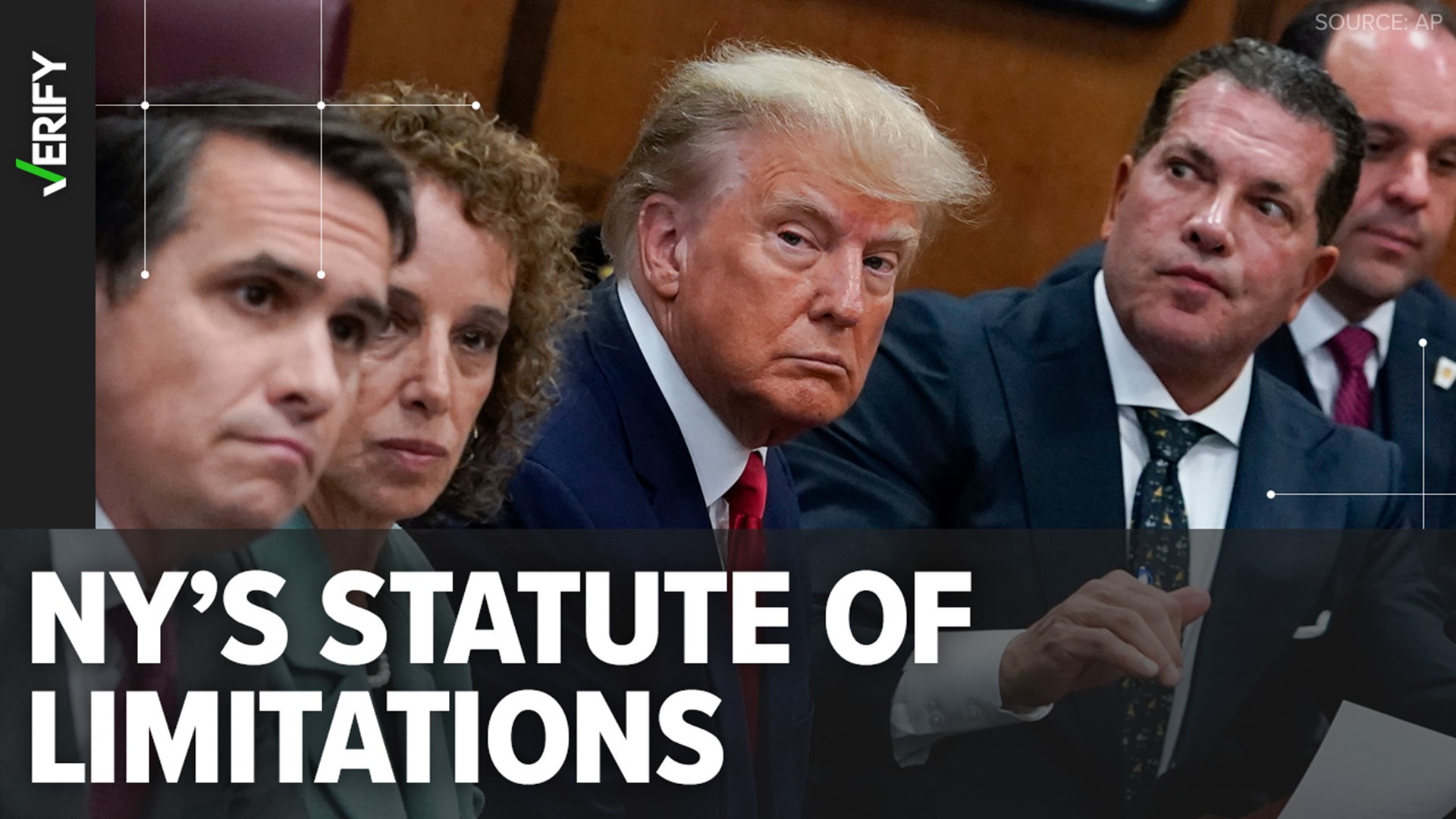Donald Trump became the first former U.S. president to be convicted of felony crimes after a New York jury found him guilty on 34 counts of falsifying business records in his hush money trial on May 30.
Trump held a press conference a day later where he attacked the guilty verdict and vowed to appeal his conviction.
During that press conference, Trump also claimed the statute of limitations on his felony crimes had run out.
“They missed the statute of limitations by a lot because this was very old,” he said. “They could have brought this seven years ago instead of bringing it right in the middle of the election. So they missed the statute of limitations.”
Before Trump’s conviction, some people on social media argued that the case should have been thrown out because there is a five-year statute of limitations for the felony charges in New York. But other people online claimed the time limit can be extended in some cases.
THE QUESTION
Can New York’s five-year statute of limitations for felonies be extended in some cases?
THE SOURCES
- New York law
- New York State Unified Court System
- March 2020 and April 2021 executive orders issued by New York Gov. Andrew Cuomo
- Pretrial decision from Judge Juan Merchan
- Jeffrey Kirchmeier, professor of law at the City University of New York’s School of Law
- Paul Schiff Berman, professor of law at The George Washington University Law School
- Rebecca Pirius, attorney and legal editor for Nolo
THE ANSWER
Yes, New York’s five-year statute of limitations for felonies can be extended in some cases.
WHAT WE FOUND
Statutes of limitations are time limits in which a prosecutor must bring criminal charges in a case. Those time limits vary by state and the severity of the crime.
The statute of limitations for most felonies in New York is five years, including the charges of falsifying business records that Trump is facing. There are exceptions to this time limit for certain crimes such as first-degree murder and rape, which do not have statutes in the state.
Generally, the statute of limitations starts when the crime occurs, according to attorney and Nolo legal editor Rebecca Pirius. That means a prosecutor would have five years from that date to bring felony charges against someone in New York.
But there are some exceptions that extend the statute of limitations for charges in New York, legal experts told VERIFY.
Former New York Gov. Andrew Cuomo issued executive orders in March 2020 and April 2021 that extended the time limit on filing criminal charges.
The earliest charge in Trump’s felony indictment was Feb. 14, 2017, while the indictment was filed on March 30, 2023.
Cuomo’s executive orders meant the deadline for filing the charges in the indictment was extended by one year and 47 days, Judge Juan Merchan said in a pretrial decision in February 2024.
“In other words, this felony prosecution had to be commenced within 6 years and 47 days from when the crimes were allegedly committed,” Merchan wrote in the decision.
Trump was charged within days of that deadline.
The statute of limitations in New York is “tolled,” or paused, when the defendant is not continuously present in the state, Paul Schiff Berman, a law professor at The George Washington University, said.
This exception is explicitly stated in New York law:
In calculating the time limitation applicable to commencement of a criminal action, the following periods shall not be included:
(a) Any period following the commission of the offense during which (i) the defendant was continuously outside this state or (ii) the whereabouts of the defendant were continuously unknown and continuously unascertainable by the exercise of reasonable diligence. However, in no event shall the period of limitation be extended by more than five years beyond the period otherwise applicable under subdivision two.
CUNY School of Law professor Jeffrey Kirchmeier previously told VERIFY that the prosecution could argue in Trump’s case that he was continuously out of New York while he served as president from 2017 to 2021.
The Associated Press contributed to this report.












